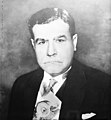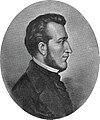The Honduras Portal
Republic of Honduras República de Honduras (Spanish) | |
|---|---|
Motto:
| |
| ISO 3166 code | HN |
Honduras, officially the Republic of Honduras, is a country in Central America. Honduras is bordered to the west by Guatemala, to the southwest by El Salvador, to the southeast by Nicaragua, to the south by the Pacific Ocean at the Gulf of Fonseca, and to the north by the Gulf of Honduras, a large inlet of the Caribbean Sea. Its capital and largest city is Tegucigalpa.
Honduras was home to several important Mesoamerican cultures, most notably the Maya, before the Spanish colonization in the sixteenth century. The Spanish introduced Catholicism and the now predominant Spanish language, along with numerous customs that have blended with the indigenous culture. Honduras became independent in 1821 and has since been a republic, although it has consistently endured much social strife and political instability, and remains one of the poorest countries in the Western Hemisphere. In 1960, the northern part of what was the Mosquito Coast was transferred from Nicaragua to Honduras by the International Court of Justice.
The nation's economy is primarily agricultural, making it especially vulnerable to natural disasters such as Hurricane Mitch in 1998. The lower class is primarily agriculturally based while wealth is concentrated in the country's urban centers. Honduras has a Human Development Index of 0.625, classifying it as a nation with medium development. When adjusted for income inequality, its Inequality-adjusted Human Development Index is 0.443. (Full article...)
Selected article -

Interesting facts -
- ... that the Honduran archaeological site El Puente was founded by the people of Copán to control the crossroads of two Maya trade routes?
- ... that William Chong Wong, the son of Chinese immigrant parents, twice served as Minister of Finance in Honduras?
- ... that the Honduran Patriotic Front, an alliance formed ahead of the 1980s elections, called for an electoral boycott in protest against perceived fraud?
- ... that in March 1871, Sensuntepeque was raided by Salvadorian Liberals with Honduran army backing after Honduras declared war on El Salvador?
Related portals
General images -
List articles

- Departments of Honduras
- List of cathedrals in Honduras
- List of companies of Honduras
- List of ecoregions in Honduras
- List of football clubs in Honduras
- List of Honduran departments by Human Development Index
- List of Hondurans
- List of Honduras-related topics
- List of national parks of Honduras
- List of political parties in Honduras
- List of presidents of Honduras
- List of rivers of Honduras
- List of wars involving Honduras
- Municipalities of Honduras
- Outline of Honduras
- Timeline of Tegucigalpa
Largest cities or towns
Topics
Map
Get involved
See WikiProject Honduras for editor resources and to collaborate with other editors on improving Wikipedia's Honduras-related articles.
Need help?
Do you have a question about Honduras that you can't find the answer to? Consider asking it at the Wikipedia reference desk.
Tasks
Did you know...
No recent additions
Associated Wikimedia
The following Wikimedia Foundation sister projects provide more on this subject:
-
Commons
Free media repository -
Wikibooks
Free textbooks and manuals -
Wikidata
Free knowledge base -
Wikinews
Free-content news -
Wikiquote
Collection of quotations -
Wikisource
Free-content library -
Wikiversity
Free learning tools -
Wikivoyage
Free travel guide -
Wiktionary
Dictionary and thesaurus











































































































